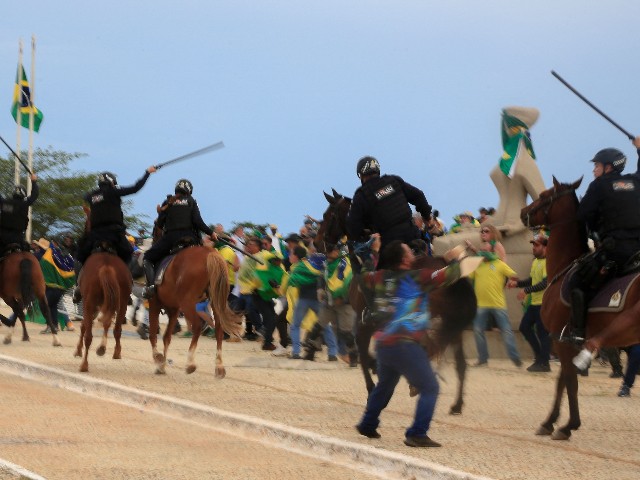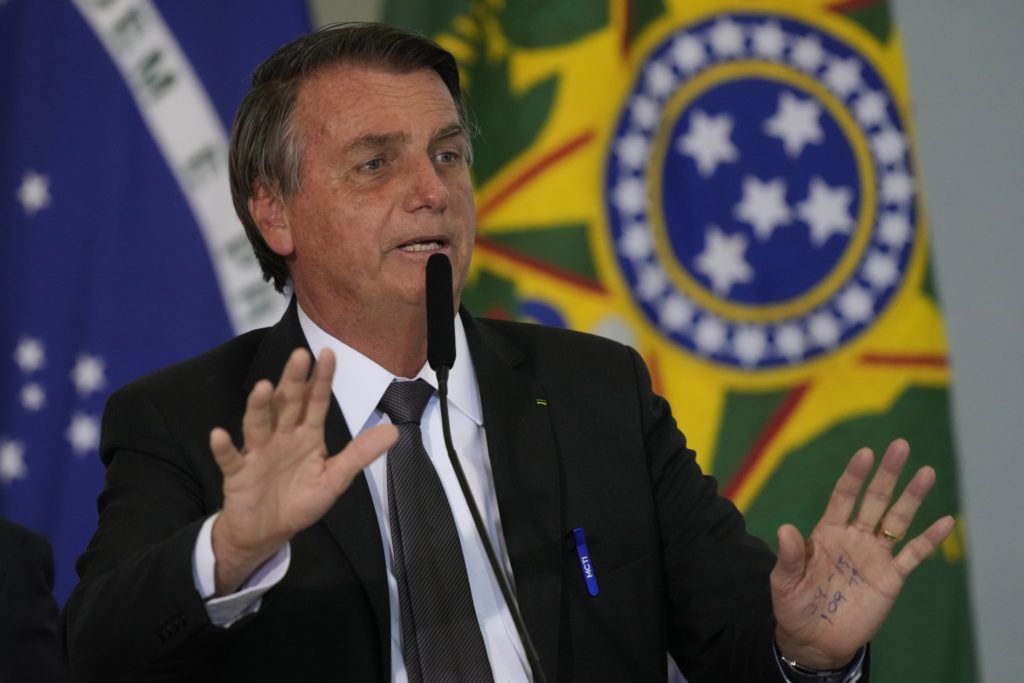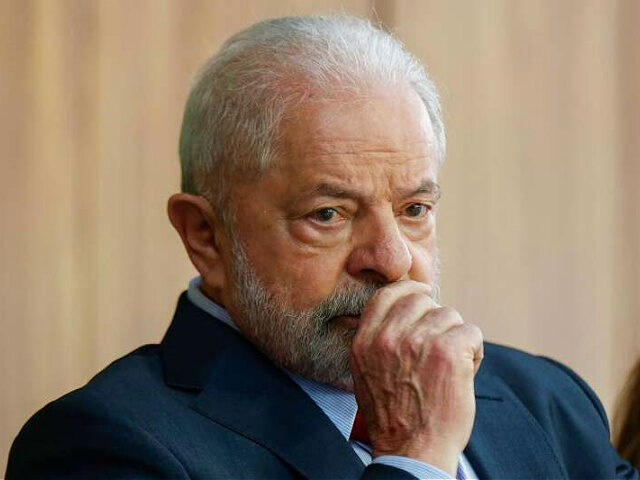A Federal Court in Brasília ordered the freezing of assets totaling 6.5 million Brazilian reals ($1.2 million) on Thursday belonging to 52 individuals and seven companies suspected of having financed the riot in the capital on Sunday.
Brazilian federal judge Francisco Alexandre Ribeiro issued the ruling in response to a request by the government of socialist convicted felon President Luiz Inácio Lula da Silva through the Office of the Attorney General.
The attorney general’s request lists a group of individuals and companies that allegedly were involved in the financing of the buses that transported protesters to Brasília for a rally on January 8 that evolved into a riot when protesters stormed the premises of the nation’s Congress, Supreme Federal Tribunal (STF), and presidential palace, causing damages to the facilities and to the priceless historical artifacts that were housed therein.
Brazilian newspaper O Globo reported on Thursday that the attorney general’s office requested the specified amount be frozen based only on estimated calculations of the damages caused by the protesters to the Brazilian Congress, as the total cost of the damages caused to the presidential palace and the nation’s top court — which was the most damaged of the three — were yet to be assessed.

Supporters of Brazilian former President Jair Bolsonaro clash with riot police as they invade Planalto Presidential Palace in Brasilia on January 8, 2023. (Photo by SERGIO LIMA/AFP via Getty Images)
In the ruling, the judge explained his decision by agreeing with the attorney general’s reasoning that those suspected of having financed the buses that transported the protesters to Brasília were responsible for the damages even though they did not directly participate in the storming of the federal government buildings.
“The Attorney General’s thesis is absolutely plausible that they, by having financed the transport of thousands of protesters who participated in the illicit events, chartering dozens of interstate buses, contributed to the achievement of the massive damage to public property, being liable, therefore, to enough civil responsibility,” Judge Ribeiro wrote.
The Brazilian government estimates that about 5,000 people participated in the January 8 riots.
The Brazilian government will reportedly use the frozen assets to repair the damages caused by the protesters. The list of frozen assets includes real estate properties, vehicles, bank accounts, and other financial resources. By Monday, Brazil’s Federal Highway Police (PRF) had intercepted and seized 55 buses reportedly involved in the transportation of the protesters.
Following the riot, the head of Brazil’s Supreme Federal Tribunal (STF), Alexandre de Moraes, ordered the removal of Brasília Gov. Ibaneis Rocha for 90 days due to his alleged “willful omission” of action in response to the violence.
De Moraes also issued an arrest warrant for Anderson Torres, who was the secretary of Brasília’s public security before Rocha fired him on Sunday. Torres served as Brazil’s minister of justice between 2019 and 2022 during the government of former president Jair Bolsonaro.

Brazil’s President Jair Bolsonaro speaks during a ceremony at the Planalto presidential palace, in Brasilia, Brazil, Tuesday, July 13, 2021. (AP Photo/Eraldo Peres)
On Friday, de Moraes ordered an inquiry against Rocha and Torres as well as the former general commander of the military police, Fábio Augusto Vieira, and the former interim Secretary of Public Security Fernando de Sousa Oliveira for their conduct, or lack thereof, during the riots.
Lula’s government has so far detained nearly 2,000 people suspected of having participated in the January 8 riots, cramming them in a police academy gymnasium. Police have been forced to free hundreds of these people – including homeless people, elderly, women with small children, and people with significant health problems — under humanitarian grounds and lack of evidence of their involvement in the event.
Christian K. Caruzo is a Venezuelan writer and documents life under socialism. You can follow him on Twitter here.

COMMENTS
Please let us know if you're having issues with commenting.